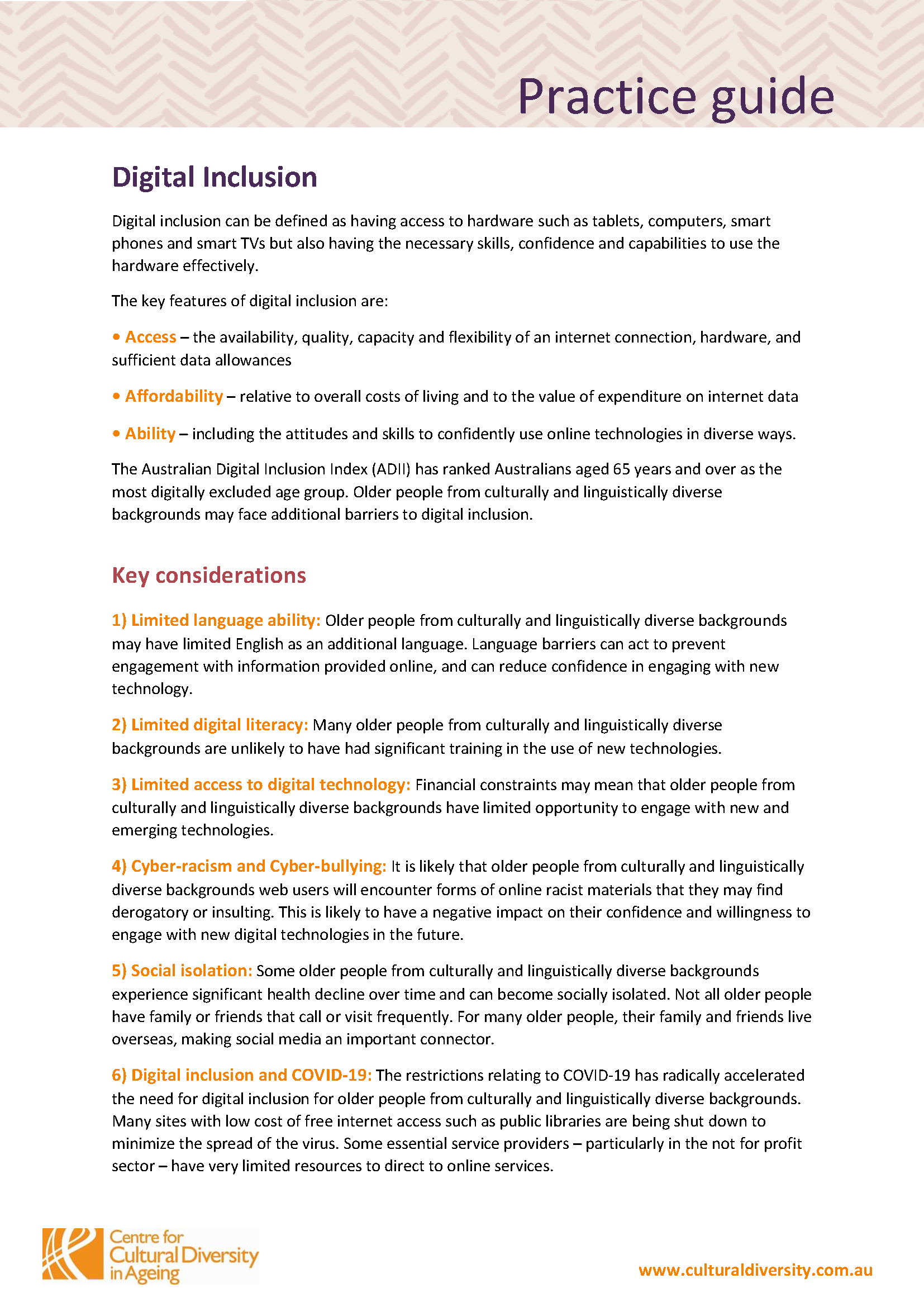How a small non-profit coached 200 older clients to access their online support groups
The Chinese Cancer and Chronic Illness Society (The Society) provides support to people who are affected by chronic or terminal illness, their carers and family from Mandarin and Cantonese speaking communities in metro Melbourne.
They have 60 volunteers.
When the lockdowns began in March 2020, The Society could no longer provide in-person services.
Manager Dorothy Yiu and her team were very worried about the effects of isolation on their clients and members.
Dorothy says, “Our clients and members could get information if they called us but there’s this sense of connection that’s not there. The sense of togetherness is important. The sense of belonging to a group and encouraging each other.”
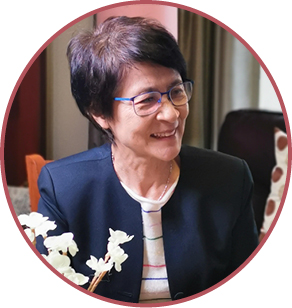 |
| Dorothy Yu |
Dorothy and team knew they had to move their services online. But they had a significant issue to overcome.
Many of their clients and members did not have the skill and capability to participate. Most of their clients and members are older people. They have smart phones but use them in a limited way. Some of them have osteoarthritis. Some of them have hearing issues. English is their additional language and for many it’s limited.
And like many older people they lack confidence using their devices.
Dorothy called for volunteers who were interested in becoming digital coaches.
12 volunteers stepped forward. First they needed to be coached themselves. They were also inexperienced with digital technology. Luckily Frieda Si, The Society’s Assistant Manager, had the skills to guide them. They spent 2 weeks getting up to speed with their devices and the video chat apps.
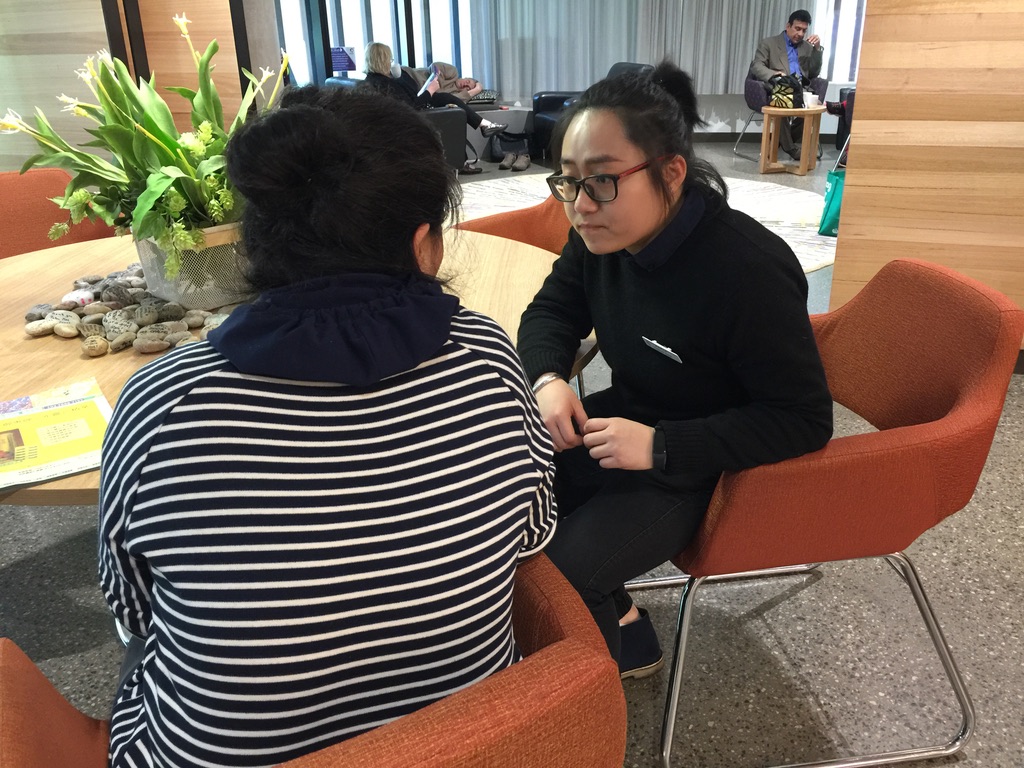
Freddie Si mentoring one of the volunteer digital couches
The digital coaches started to teach clients and members over the phone, on WhatsApp and WeChat.
Each volunteer had up to 10 clients to support. It was a slow process that required patience and repetition. And thinking outside the box. Literally…
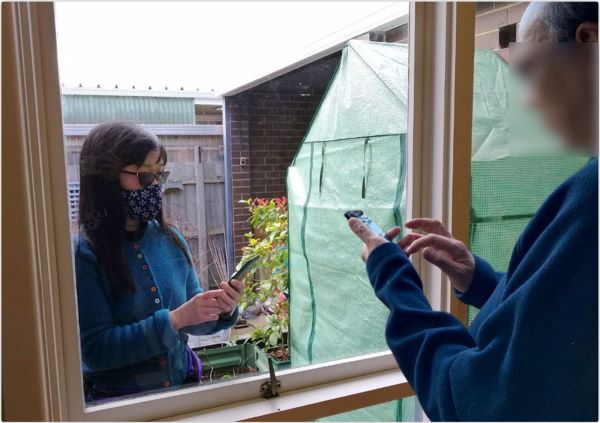
One of the Digital Coaches teaching a client during the lockdown.
The coaches also acted as mentors/tech support to the volunteer team leaders who were preparing to run their first group sessions on Zoom.
The Zoom groups began
Through repetition, trial and error, slowly but surely there’d be the wonderful moment when a member showed up in the Zoom group – surprised and delighted they’d made it. And were greeted by “YAY at last! Welcome to our online meeting”.
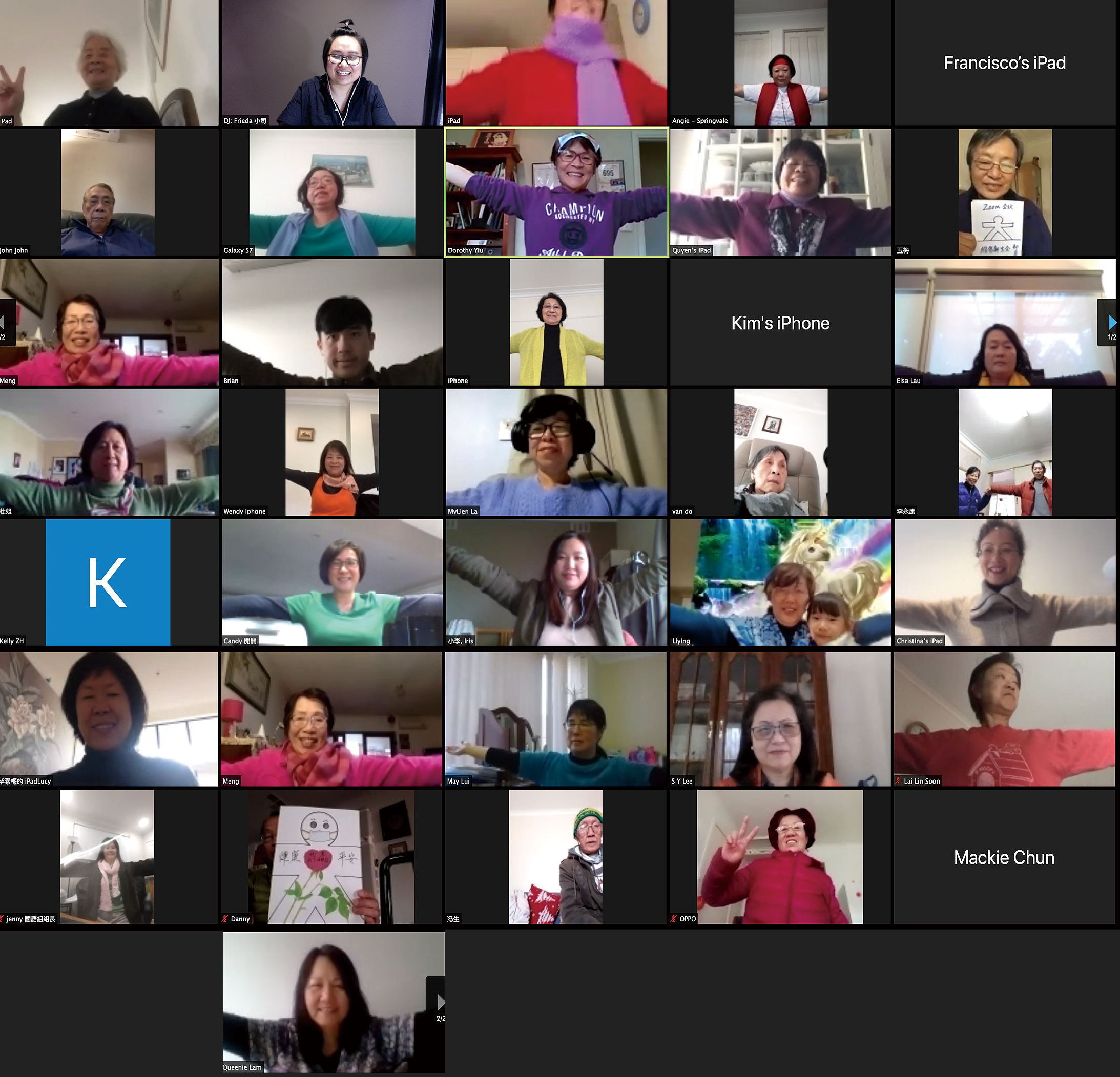
Zoom Group on Mother’s Day
The Society holds around 10 Zoom groups a week
They usually have 12 participants in a session.
The groups include:
• Cancer support
• Parkinson’s and Dementia support
• Digital support
• Wellbeing
The team leaders use the groups as an opportunity to keep members up to date about COVID-19 news.They’ve also been holding health and wellbeing seminars with guest speakers. Each seminar attracts 45-65 participants.
Here’s just a few:
• Mental health and wellbeing during COVID-19
• Insomnia? What to do?
• Grandparenting: the pain and joys of inter-generational education
• Family relations and the rights of the elderly
• Oral Health
200 members and clients now have digital access
Dorothy and team plan to keep the zoom groups going after they return to in-person services. It gives access to people who can’t travel to the Centre.
And the digital coaching is here to stay.
Dorothy’s advice to leaders in aged care services
“The most important thing is the commitment of your staff or your volunteers.
Don’t be afraid that older people can’t learn because they have all these barriers. It’s really a matter of whether you’re willing to commit, to be patient and persistent.
It’s a matter of practise, an ongoing process so that the clients keep doing it and keep practising and finally learn it.”
What is digital inclusion?
Digital inclusion is having access to devices like smart phones and computers. Plus the skill, confidence and capability to use them. The Australian Digital Inclusion Index ranks Australians aged 65+ as the most digitally excluded group. Older people from culturally and linguistically diverse backgrounds may face additional barriers to digital inclusion.
The restrictions relating to COVID-19 have radically accelerated the need for digital inclusion for older people from culturally and linguistically diverse backgrounds.
For more info + links to resources check out our short pdf Digital Inclusion Practice Guide (584 KB)
Thank you Dorothy, staff and volunteers for sharing your inspiring digital inclusion story
Photos supplied by CCCIS.

